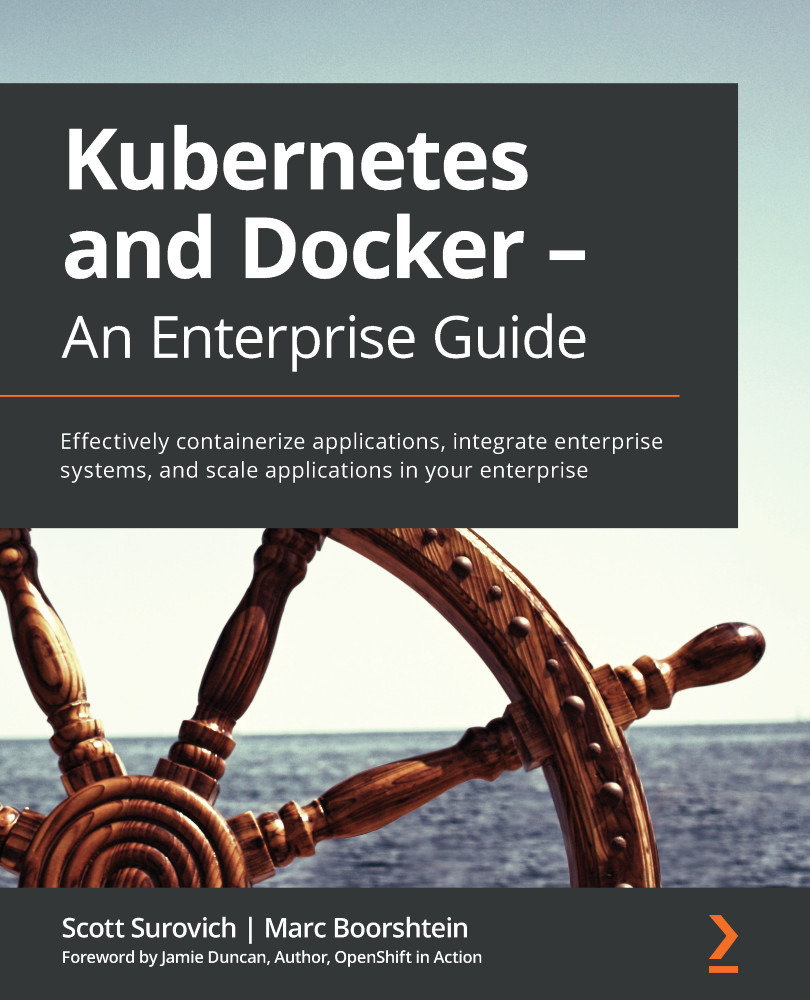-
Book Overview & Buying

-
Table Of Contents
-
Feedback & Rating

Kubernetes and Docker - An Enterprise Guide
By :

Kubernetes and Docker - An Enterprise Guide
By:
Overview of this book
Containerization has changed the DevOps game completely, with Docker and Kubernetes playing important roles in altering the flow of app creation and deployment. This book will help you acquire the knowledge and tools required to integrate Kubernetes clusters in an enterprise environment.
The book begins by introducing you to Docker and Kubernetes fundamentals, including a review of basic Kubernetes objects. You’ll then get to grips with containerization and understand its core functionalities, including how to create ephemeral multinode clusters using kind. As you make progress, you’ll learn about cluster architecture, Kubernetes cluster deployment, and cluster management, and get started with application deployment. Moving on, you’ll find out how to integrate your container to a cloud platform and integrate tools including MetalLB, externalDNS, OpenID connect (OIDC), pod security policies (PSPs), Open Policy Agent (OPA), Falco, and Velero. Finally, you will discover how to deploy an entire platform to the cloud using continuous integration and continuous delivery (CI/CD).
By the end of this Kubernetes book, you will have learned how to create development clusters for testing applications and Kubernetes components, and be able to secure and audit a cluster by implementing various open-source solutions including OpenUnison, OPA, Falco, Kibana, and Velero.
Table of Contents (20 chapters)
Preface
Section 1: Docker and Container Fundamentals
 Free Chapter
Free Chapter
Chapter 1: Docker and Container Essentials
Chapter 2: Working with Docker Data
Chapter 3: Understanding Docker Networking
Section 2: Creating Kubernetes Development Clusters, Understanding objects, and Exposing Services
Chapter 4: Deploying Kubernetes Using KinD
Chapter 5: Kubernetes Bootcamp
Chapter 6: Services, Load Balancing, and External DNS
Section 3: Running Kubernetes in the Enterprise
Chapter 7: Integrating Authentication into Your Cluster
Chapter 8: RBAC Policies and Auditing
Chapter 9: Deploying a Secured Kubernetes Dashboard
Chapter 10: Creating PodSecurityPolicies
Chapter 11: Extending Security Using Open Policy Agent
Chapter 12: Auditing using Falco and EFK
Chapter 13: Backing Up Workloads
Chapter 14: Provisioning a Platform
Assessments
Other Books You May Enjoy
Customer Reviews

